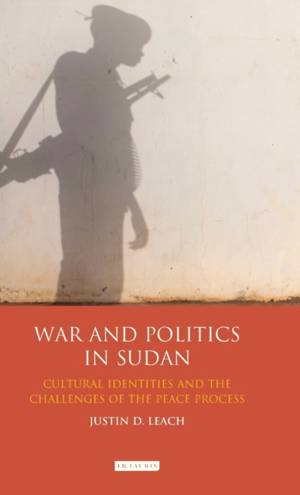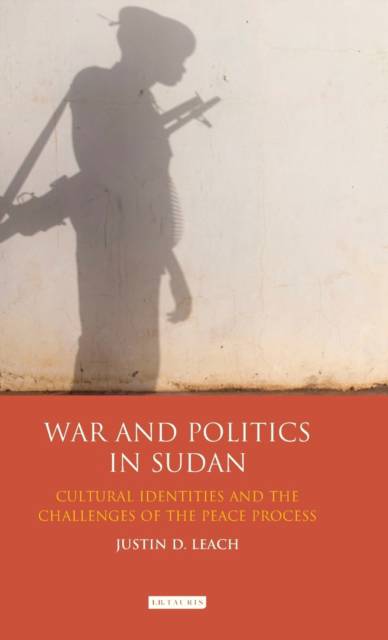
- Retrait gratuit dans votre magasin Club
- 7.000.000 titres dans notre catalogue
- Payer en toute sécurité
- Toujours un magasin près de chez vous
- Retrait gratuit dans votre magasin Club
- 7.000.0000 titres dans notre catalogue
- Payer en toute sécurité
- Toujours un magasin près de chez vous
War and Politics in Sudan
Cultural Identities and the Challenges of the Peace Process
Justin D Leach
296,95 €
+ 593 points
Description
On 9 July 2011, South Sudan became an independent state after more than half a century of civil conflict wrought with human rights abuse. Indeed, the post-colonial history of Sudan has been characterised by two Civil Wars spanning almost two decades each: the first from 1955-1972 and the second from 1983-2005. With questions of national and regional identity at the heart of the conflict, the Sudanese Civil Wars have highlighted key questions about the post-colonial epoch. Justin Leach's War and Politics in the Sudan offers a comparative analysis of the First and Second Sudanese Civil Wars, along with the peace treaties which ended them. Most historians have seen the 1972 Addis Ababa Agreement as a stepping stone to renewed civil conflict in 1983 rather than as a settlement in its own right. Leach, on the other hand, believes that the size of Sudan precludes the application of traditional theories of conflict resolution. The introduction of natural resources brought a new facet to the already complex Second Sudanese Civil War. Oil, for instance, internationalised the conflict and added yet another prism through which groups in the conflict could view their identity.
By tracing the evolving demands of the southern insurgents and the regimes they fought against, Leach outlines the main challenges to the Sudanese nationalist project, including the strength of southern regional identities, the resurgence of political Islam in the north as well as the sheer duration of the conflict. War and Politics in the Sudan thus offers a fresh and timely analysis of a region long beset by civil conflict, interethnic violence and poverty, a region whose historical narrative has recently taken on a new trajectory. Those interested in post-colonial Sudanese history are sure to find Leach's arguments both persuasive and pertinent.
By tracing the evolving demands of the southern insurgents and the regimes they fought against, Leach outlines the main challenges to the Sudanese nationalist project, including the strength of southern regional identities, the resurgence of political Islam in the north as well as the sheer duration of the conflict. War and Politics in the Sudan thus offers a fresh and timely analysis of a region long beset by civil conflict, interethnic violence and poverty, a region whose historical narrative has recently taken on a new trajectory. Those interested in post-colonial Sudanese history are sure to find Leach's arguments both persuasive and pertinent.
Spécifications
Parties prenantes
- Auteur(s) :
- Editeur:
Contenu
- Nombre de pages :
- 288
- Langue:
- Anglais
- Collection :
- Tome:
- n° 36
Caractéristiques
- EAN:
- 9781780762272
- Date de parution :
- 26-11-12
- Format:
- Livre relié
- Format numérique:
- Genaaid
- Dimensions :
- 145 mm x 213 mm
- Poids :
- 453 g

Les avis
Nous publions uniquement les avis qui respectent les conditions requises. Consultez nos conditions pour les avis.






